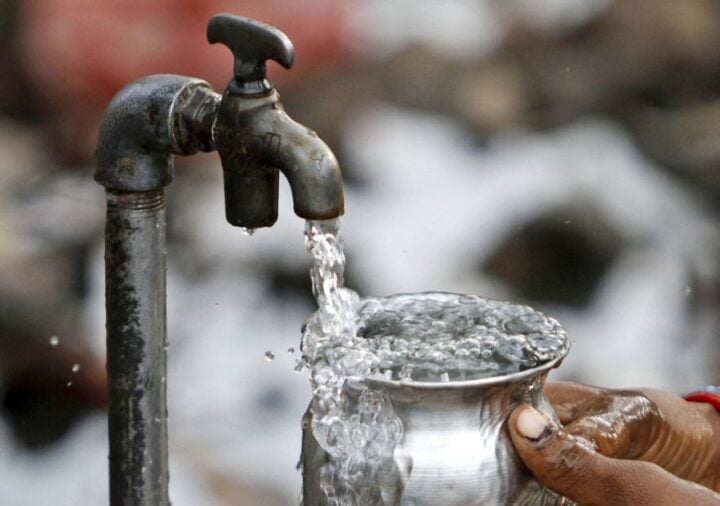As Nigeria’s population has increased, so has the demand for accessible, reliable, and safe drinking water. However, elements like climate change and other environmentally-hazardous practices have hampered risk-free access to water for a majority of the country’s over 200 million people.
Nigeria’s new commitment to join and implement the United Nations treaty known as the ‘Water Convention’ could fix this. The commitment was an outcome of a national workshop held in Abuja from July 27 to July 29, which focused on the protection and use of transboundary watercourses and international lakes.
The UN water convention dates back to 1992, when countries took a decision in Finland on management of shared water bodies in Europe as part of efforts on sustainable development.
In 2016, the commitment was extended to cover other member states of the UN, and it is described as “a unique legally binding instrument promoting the sustainable management of shared water resources, implementation of the sustainable development goals, prevention of conflicts, and the promotion of peace and regional integration”.
Advertisement
Nigeria shares transboundary water bodies with neighbouring countries. The Lake Chad Basin, for example, is the largest inland drainage area in Africa covering an area equal to eight percent of the total area of the continent.
“It’s a very good time right now because there is a huge momentum for the water convention in Africa at the moment,” Sonja Koeppel, secretary to the UN water convention, told TheCable.
Acceding to the water convention is important for Nigeria since it shares the majority of its water resources with neighbouring countries. By membership, Nigeria will strengthen its national capacity and trans-water cooperation.
Advertisement
POSITIVE IMPACT ON CLIMATE CHANGE
Given Lake Chad’s position in Nigeria, the water that moves through the basin’s river systems after the rainy season has an outsized impact on persons who live in affected areas.
The effect is double-edged. In some seasons, there isn’t enough water to go around. In other seasons, the impact comes in the form of too much water. This season is an outcome of the latter.
According to US government, at least 220,000 people had been affected by flooding across the basin as of November 2021, and northern Cameroon and north-east Nigeria were the most hit.
Advertisement
“With these shared waters increasingly threatened by water scarcity and flooding linked to climate change, pollution, and rising demands on their use, transboundary water cooperation is crucial for peace, conflict prevention, sustainable development, and human well-being,” Koeppel said.
“This is particularly relevant in regions such as the Lake Chad and Niger basin where water is closely related to security, livelihoods, and regional stability.
“With key data and information from other member countries, Nigeria can provide access to water and sanitation and address challenges related to climate change or impacts of other disaster risks.”
CONTRIBUTION TO SUSTAINABLE DEVELOPMENT
Advertisement
According to Suleiman Adamu, Nigeria’s minister of water resources, the water convention is important to the country because rivers Niger and Benue, the two main water bodies in Nigeria, are transboundary in nature and such a legal framework will promote environmental sustainability.
“Acceding to the water convention is important to us as a country because the two main surface water bodies in Nigeria — namely, the rivers Niger and Benue — are transboundary in nature. Another transboundary water body is the Lake Chad which is shared by four countries including Nigeria,” he said.
Advertisement
“This is not peculiar to Nigeria as more than 40 percent of the universal population depends on transboundary waters for their livelihoods.
“Therefore, acceding to this convention provides additional legal and institutional cooperation framework, which is essential in the management of these transboundary waters to ensure environmental sustainability, economic growth, and conflict prevention.”
Advertisement
While Nigeria insists it is on track to achieve the sustainable development goals (SDGs), Adamu is certain the country’s new relationship with the UN will contribute to achieving the SDG6, which seeks to ensure the availability and sustainable management of water and sanitation for all.
Meanwhile, according to Koeppel, the international community is willing to contribute to accelerating Nigeria’s new global exposure.
Advertisement
“Acceding into this convention gives a positive signal to the international community, including international financial institutions. Not only will these institutions support Nigeria but so will, so far, 46 parties across the world because of this new exposure,” Koeppel added.
The convention will also provide Nigeria with the opportunity to learn from other member countries on implementing good practices and international commitments under the SDGs.
THE LESSON FOR AFRICA
Stakeholders believe Nigeria’s accession would help consolidate the momentum on water cooperation in Africa, given its role as one of the largest economies on the continent. Its position in key shared basins also proves a catalyst for more countries to join and reap the benefits of implementing the water convention.
“Chad, Senegal, Ghana, Guinea-Bissau, and Togo have joined the Convention since 2018 following its opening to accession by all UN member states. Cameroon is on the cusp of becoming a party, following the president’s signature on accession earlier this month,” the secretary of the water convention said.
“More than 15 countries are in the process of joining, most of which are in Africa. Nigeria’s accession could be particularly crucial as, together with Cameroon, it would help reach a critical mass of water convention parties in the region that share the same water resources.”
According to the UN, some three billion people worldwide depend on water that is shared by two or more countries, leaving them at risk of effects from water-borne problems. Nigeria is one of them but with this move, the country stands a better chance of providing quality alternatives for its people.
Add a comment






